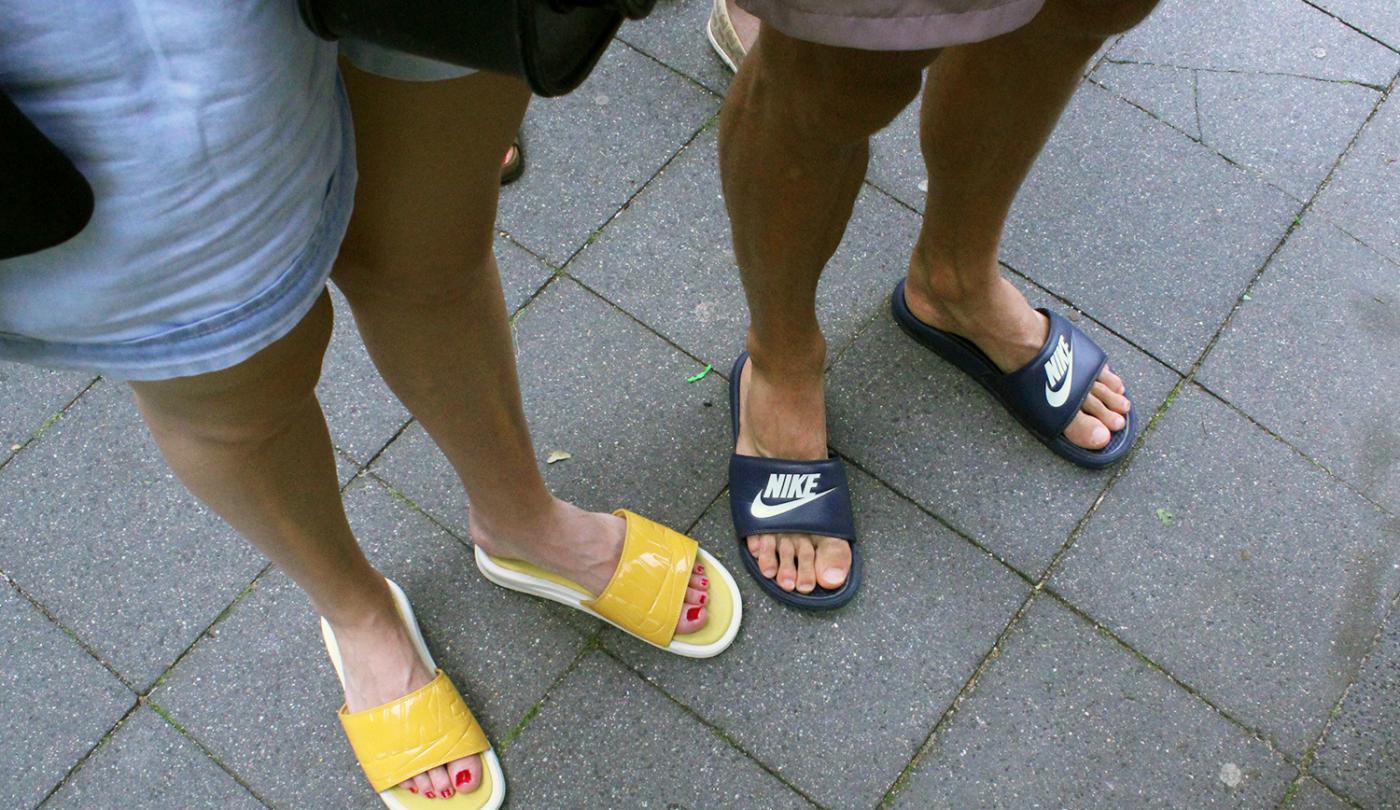How exposed can you come to work or lecture?

“I do not appreciate colleagues who will take off clothes because of the warm weather. In that case, I unwittingly enter my colleague’s private domain,” said Utrecht publicist Japke Bouma on Tuesday morning on the Radio 1 News. She caused a lot of commotion a few years ago with a column in the NRC in which she expresses her annoyance about people going to work on their flip-flops or in shorts.
Flip-flops, shorts, non-concealing dresses or tops are the subject of discussion these days. Many offices and lecture halls at Utrecht University do not have air conditioning, causing sweaty students and staff. Yet most people feel that it is not appropriate to come to work in a outfit that is too summery. Nevertheless, general manager Leon van der Zande says there are no general clothing rules for university staff, who were treated to a refreshing ice cream this Tuesday. It is up to people themselves to determine the boundaries.
When are you too exposed?
This is different for some employees of the Facility Service Center. They have company clothing for recognisability and safety. Or employees with a public function, such as certain employees of Security and Sodexo, for example, who wear corporate clothing. Winter and summer outfits are included in the collection. Employees who work at a student desk or information desk at the University Library also has a public function. Especially the latter have recently been having a discussion about this topic.
“When it was so hot last year, a discussion arose about what is and what is not possible,” says Inge Werner, the University Library’s Head of Collection Services Department. According to her, previous communication about clothing on the intranet did not work well. On there, shorts and shirts with spaghetti straps were described as undesirable. “Now within the University Library we talk to each other about how we want to come across as an organization. We have set up a taskforce that will look into representativeness in a broader context. We also want to take into account diversity within the organization. What do people think is okay and how do we keep each other sharp?”
In 2016 a brochure was made about the quality of service. This was intended for all front offices for students, such as the Student Services and the Student Desks of the faculties. It also contained a chapter in which it was stated that employees should be dressed in a representative way with a few examples of items of clothing that could not be worn. “You see that such a guideline becomes less known over time, partly due to a change in staff,” says Marieke de Bakker of Student Affairs. “Maybe it’s time to review that again.”
What is representative?
The Student Desks at the faculties do not know the guidelines. The norm is that you come to work neat and representative, but what that means exactly is subjective. This is the case with most faculties. Olga Hengeveld works as department head of administrative support at the Humanities. “We are sometimes asked the question during job interviews. We, too, have no rules on paper, but if someone comes to work on slippers or shorts, I will address them on that.” The point is that the assessment is subjective. Are shorts or skirts more appropriate on women than on men? And who determines that?
No rules have been laid down for teachers either. A teacher is supposed to determine for himself what can and cannot be done. “Unfortunately, teachers are still too underdressed in front of a workgroup or lecture hall. Often very funny, but mainly very embarrassing,” student Wouter Lammers noted a few years ago in a DUB panel about dress code at the UU. The tenor in that article was that we should not be patronizing. Only research analyst Mies van Steenbergen insisted on a dress code at the UU in that article: “We are here to work not to run a fashion show,” he writes. “At the risk of being called sexist: a scantily clad lady is distracting to those who fall for that.”
Moreover, the standards are less strict for students than for employees. Students feel more free in their choice of clothing. That also applies to the library, Inge Werner knows. “Quite a few scantily clad students walk around here in the summer. But we don’t them on that.”